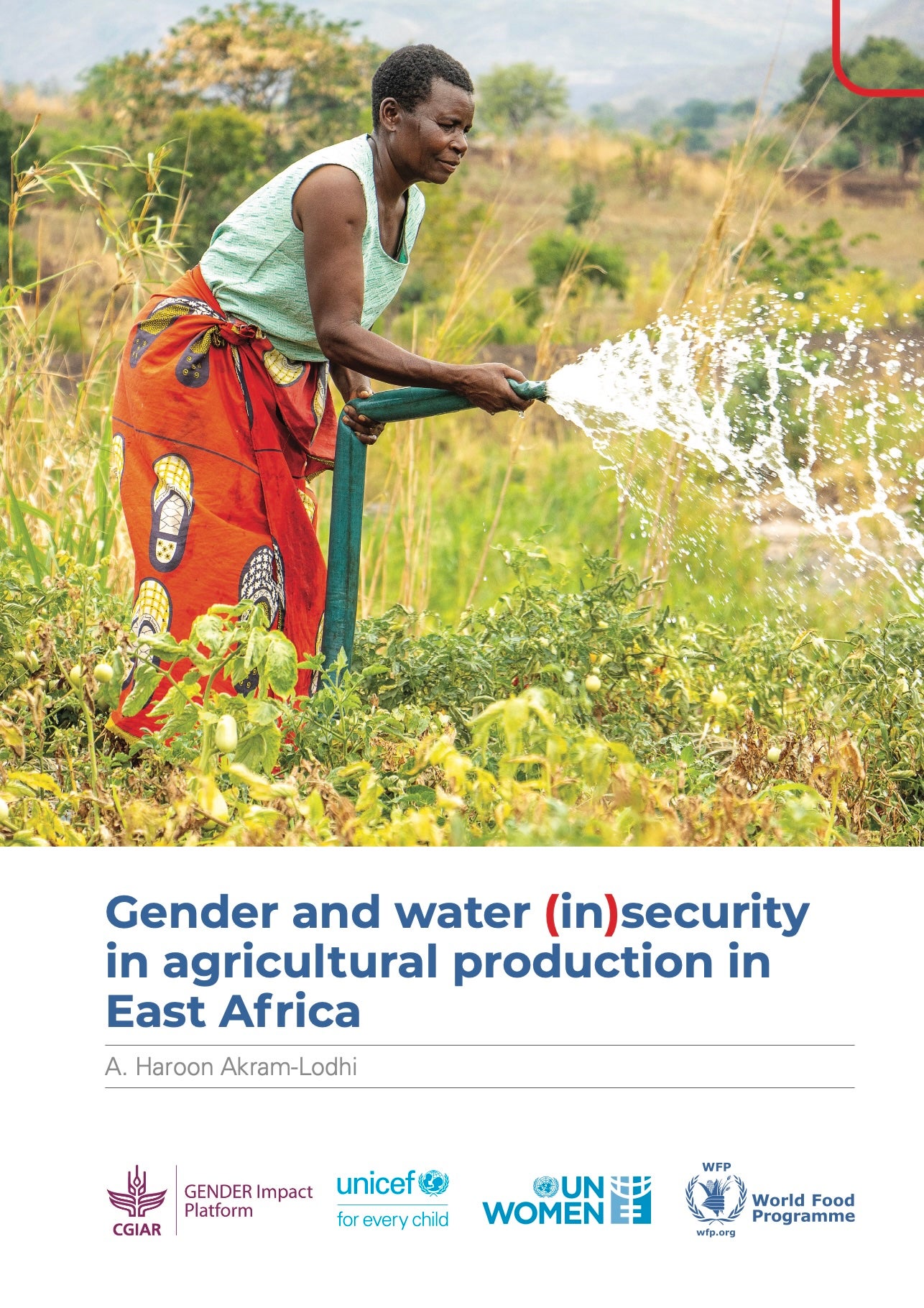
GENDER AND WATER (IN)SECURITY IN AGRICULTURAL PRODUCTION IN EAST AFRICA

Evidence on gendered access to irrigation water for agricultural production is robust overall but limited in many places, while quantitative and qualitative evidence on the mechanisms whereby access to rainwater for agricultural production might be gendered is almost completely absent. Irrigation is understood to include water accessed through infrastructure such as canals and pumps, as well as harvested and stored rainwater and surface runoff that is used when rain ceases. In this light, the World Food Programme, UN Women, UNICEF and CGIAR commissioned field studies in three countries of East Africa -- Ethiopia, Kenya and South Sudan -- to determine whether there is gendered access to rainwater and irrigation for agricultural production.
Specifically, the policy-oriented research focused on: the gender dynamics surrounding the terms and conditions governing access to, use of and control over rain water and irrigation used for productive livelihoods in agriculture in the countryside of Ethiopia, Kenya and South Sudan; how rural institutional arrangements and climate change impacts productive water use by women, men and children in agriculture; how gender dynamics in access to water for production intersect with generational dynamics, particularly with regard to girls and boys; how gendered access to irrigation is impacted by the social norms that shape governance structures; and the policy responses needed to equitably respond to these gender challenges in ways that are also generationally equitable.